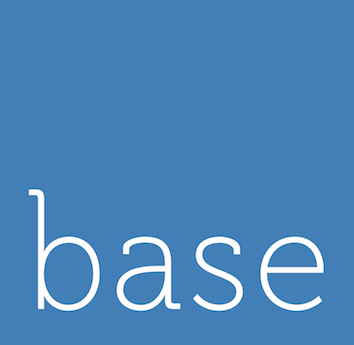March 10, 2021
How “VUCA” the world of leadership really is, becomes clear when we look at how the pandemic changed leadership needs: from maintaining a sense of direction to dealing with motivation issues resulting from loneliness (DeFilippis et al., 2020) … you name it. The only certainty is uncertainty and different times require different leaders. What skills do leaders need to navigate a team through the current storm? We asked millennials because they form the new wave of leaders which is already in front of the door. Knowing their expectations of good leadership is vital to set the stage for these incoming young leaders and to propel their professional development. The following sneak peek of our findings stems from extensive desk research and an international survey targeted at millennials, resulting in a brief 2021 leadership philosophy.

Luka Paul Vethake, communications intern Radboud University

Trend #1: Agility and development. It is not enough anymore to view change as a vehicle but to see it as a state of mind. Leaders should be flexible in the way they use their communication skills. For example, as many millennials prioritise wellbeing over work, remote teams are here to stay.
Now is the time to review digital leadership communication skills and organisational readiness. The future workplace needs leaders who can mentor and empower their employees to bring out the very best of them, and they need to be able to do this virtually (Hagel, Schwartz & Bersin, 2017).
Trend #2: Purpose and impact. There is a new generation of leaders arriving and it is coming fast. They are highly interconnected and have an innate drive to change the business-as-usual regarding sustainability, digital literacy and emotional wellbeing also in the work sphere (Deloitte, 2020). In terms of teams, we are looking at highly diverse teams which place low value on conservatism. These teams need to be managed effectively and with a great deal of interpersonal (digital) communication skills.
Countless initiatives like “Leaders on Purpose” prove that there is a desire to make a positive impact. With millennials and younger generations already entering leadership positions, your organisation will be confronted with impact-seeking people, different worldviews, communication needs and leadership expectations. Communicating purpose and impact is a great way to unite multigenerational workplaces and align stakeholders.

Credit: AquaPonics USA

Credit: Forbes Magazine
Trend #3: Empathy and teamwork. Especially under COVID, leaders have foregrounded empathic communication (Wignaraja, 2020) which our millennial survey respondents also identified as a skill needed more. With respect to this, active listening skills and creating safe spaces to share thoughts are not only important during the pandemic but should be institutionalised to humanise the work environment in the future (Korn Ferry, 2020). The inclusion and empowerment of employees with different backgrounds demanded more attention according to the survey respondents. Combined together, empathy and team skills are congruent with the arising importance of skills like social influence and stress tolerance by 2025 in the Digital Communication and IT sector (World Economic Forum, 2020).
Our takeaway message: purpose-driven and compassionate narratives transcend cultures, time and leaders themselves. Millennials have specific demands and expectations for leadership skills. Instead of ignoring the voice of an entire work generation, it is time to teach them the skills that will be necessary in the close future. Add interpersonal communication skills and emotional intelligence to a “leader blueprint” and you will get a team leader. Add creativity and flexibility and you will get an agile leader. Add purpose and corporate communication skills and you will get a connecting leader. We need connection because this is the way that we have prevailed for generations: through cooperation and adaptation.
References
DeFilippis, E., Impink, S. M., Singell, M., Polzer, J. T., & Sadun, R. (2020, July). Collaborating During Coronavirus: The Impact of COVID-19 on the Nature of Work (National Bureau of Economic Research Working Papers No. 27612). Retrieved from https://www.nber.org/system/files/working_papers/w27612/w27612.pdf
Deloitte (2020). The Deloitte Global Millennial Survey 2020. https://www2.deloitte.com/global/en/pages/about-deloitte/articles/millennialsurvey.html
Hagel, J., Schwartz, J., & Bersin, J. (2017). Navigating the future of work. Deloitte Review (pp. 26-46). https://www2.deloitte.com/content/dam/insights/us/collections/issue-21/Deloitte-Review-Issue21.pdf
Korn Ferry (2020). The COVID-19 leadership guide. https://www.kornferry.com/content/dam/kornferry/special-project-images/coronavirus/docs/KF_Leadership_Playbook_Global_FINAL.pdf
Wignaraja, K. (2020, June 1). Six leadership lessons from COVID-19. United Nations Development Programme. https://www.undp.org/content/undp/en/home/blog/2020/six-leadership-lessons-from-covid-19.html
World Economic Forum (2020). The future of jobs report 2020. http://www3.weforum.org/docs/WEF_Future_of_Jobs_2020.pdf

Break the bias
Stereotypes (assumptions) bear escalation potential toward prejudices (beliefs). Prejudices in turn can lead to discrimination [...]
Psychological safety
How can an individual manager in a complex environment protect their mental health, their unit’s [...]
Turbulence
COVID-19, Ukraine, climate change: read up on Connecting Leadership in turbulent times to stay afloat!
Stay Connected